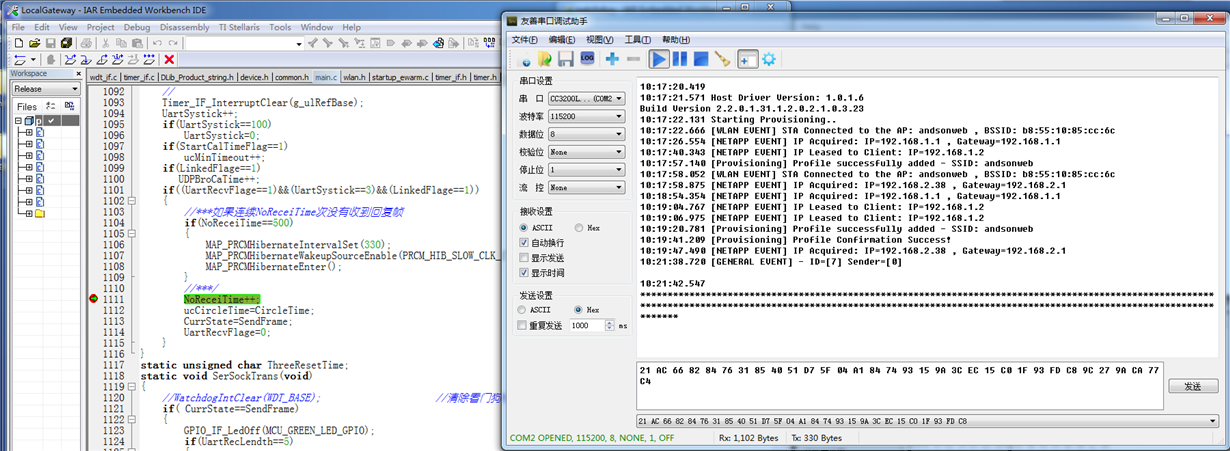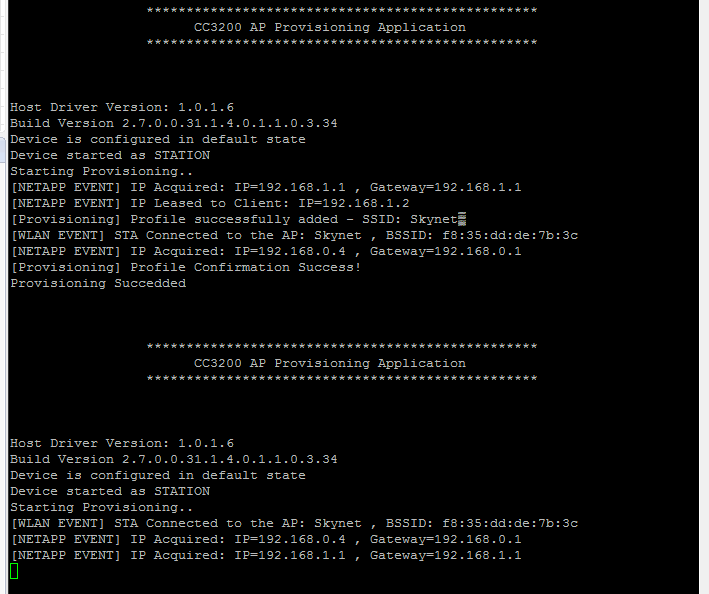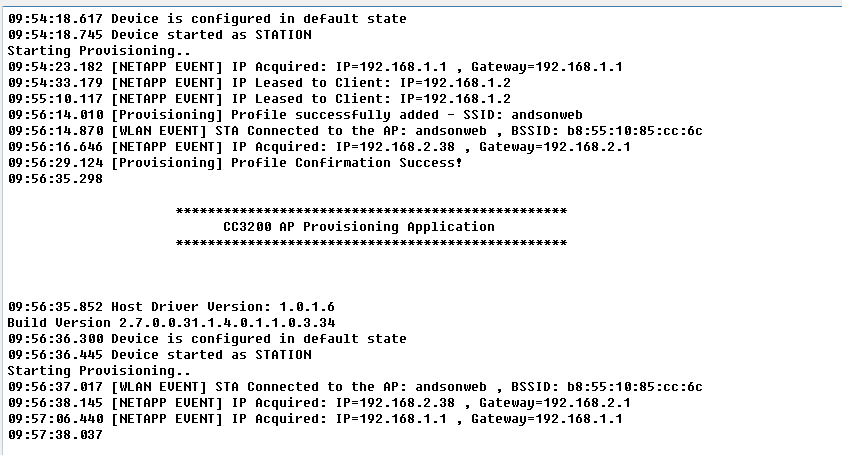Hi,
I test the Provisioning AP in SDK1.2. What I want is that cc3200 will relink the router when it restarted.
After I delete the codes in ConfigureSimpleLinkToDefaultState() like :
// Remove all profiles
//lRetVal = sl_WlanProfileDel(0xFF);
//ASSERT_ON_ERROR(lRetVal);
First I link the router succussfully and I restarted the cc3200, it showed that.
So, it seemed like cc3200 did not relink the router and sometimes there is "[GENERAL EVENT] - ID=[-76] Sender=[140]".
Why?




